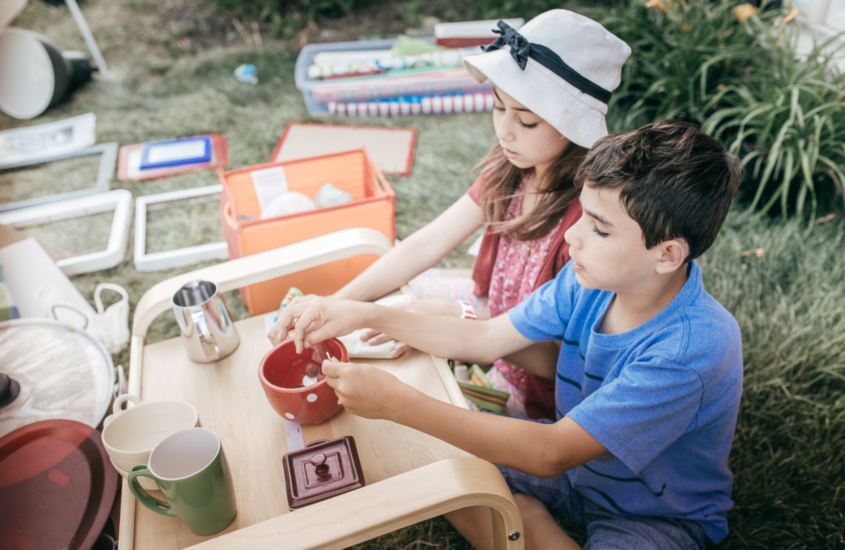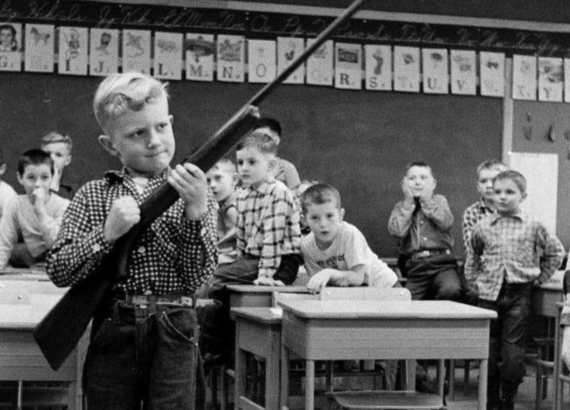6 Home Economic Skills Your Kids Probably Aren’t Learning in School
AmericanMom Team |
We’ve often advocated for learning – whether you’re homeschooling or sending your kids to public school – to be a family-centered activity. Your involvement in your child’s education can make all the difference as your kids see that learning is a life-long concern. But, more importantly, it will keep you informed regarding their curriculum, as well as what is missing from it. Unfortunately, it’s not hard to see where most public and private schools are lacking these days.
“According to the U.S. Department of Education, 54% of U.S. adults 16-74 years old – about 130 million people – lack proficiency in literacy, reading below the equivalent of a sixth-grade level.” – Forbes.
This number is astonishing and unsettling as we prepare for the next generations to take their places in the world and the industries that keep it running. However, another concern might haunt us as a nation even more: only 6,000 schools of the roughly 130,930 across the U.S. teach home economics.
Remember that class? The one where you learned how to make a basic meal for yourself, sew, eat healthy, budget, maintain hygiene, become involved in your community, and so much more? Essentially, home economics is where a foundation for surviving and thriving in the world was laid, especially for kids without involved parents, and those basic skills have been denied to generations. Certainly home economics are best taught at home, but if a public school’s mission is to prepare kids to be successful adults, then home economics should play a key part in their education, regardless of whether or not they receive a version of this education at home as well. Which is why we are encouraging you to take up where schools leave off by teaching your children these 6 home economic skills they may or not may not be learning in school.
1.Meal Preparation
This is the most basic of basic skills. Start with younger kids and teach them how to safely use the oven, stove, knives (use sets of kid-safe kitchen tools), blender, and other appliances and kitchen utensils. Then move on to preparing simple, essential meals. Let your kids cook alongside you, and take charge of meal preparation for the whole family. From slicing up fruit and making pancakes or an omelet for breakfast to roasting a chicken and preparing a vegetable for dinner, kids of all ages should be comfortable in the kitchen and know how to make basic, nutritious meals.
This skill ensures survival. Food is essential, and healthy meals are important to healthy futures. As kids, they will learn responsibility and acquire a useful skill. As adults, they’ll be able to feed themselves, their families, and their communities.
This article from Eating Well outlines some basic cooking skills by age group and is a great place to start.
2.Simple Banking & Budgeting
Too many young adults are oblivious when it comes to money. This unfortunate ignorance can lead to uncontrollable spending, unpayable debt, mismanaged funds, incorrectly paid taxes, and bad investments. Knowing even a little bit about basic banking principles, savings, loans, and how to create and balance a budget can completely change a child’s understanding of the world and how to be smart with what is given to them.
There are endless resources out there to help you ensure your kids are financially literate. One great resource is your local bank or federal credit union which often have kid programs. But you can also enroll your child in a Junior Achievement Program. These courses are hands-on, interactive programs where students learn everything from complex economics to running a business, to entrepreneurship, job interviews, business management, and more.
3.Time Management
This may not seem like the most important skill, but time management plays a big part in getting, keeping, and being successful in a job, keeping a household running smoothly, planning events, scheduling, and more. By simply holding kids accountable to a regular schedule, allowing them to manage their time, and make plans, they learn to take responsibility for their time and spend it wisely. They will also learn what types of schedule works best for them, and how they can optimize their time to accommodate their needs and accomplish what needs to be done.
4.Sewing
You don’t have to expect your children to be able to make their own clothes, but they should know how to sew on a button, hem a pair of pants, or fix an unraveling seam. Sewing teaches patience, concentration, and precision – all while allowing for creativity and the confidence that comes from having made or fixed something for yourself.
5.Propagating seeds
Your kids might have propagated a seed or two for science for the fun of it, but not for the purpose of actually growing food. While you don’t have to take this to “prepper” levels, knowing how to grow your own food and take care of plants in general is an essential, emergency skill. Gardens – small or large – are a great way to reconnect to nature. They teach patience, encourage a caring attitude, and are a great source of pride and accomplishment. Starting from scratch with seeds, you’ll be able to observe the whole process, and kids will have their own plant to watch over and nurture.
6.CPR & Childcare
Traditionally, childcare was a part of home economics courses. And while you might find that an odd thing to teach to elementary aged children, there are plenty of ways to incorporate those basic skills into your home economics lessons. CPR is a great place to start. All kids should be taught the basics like the heimlich maneuver – if not to perform it themselves, but to know what to do if they are choking. Your local Red Cross most likely hosts classes for all ages that can help prepare your child for emergencies so they don’t panic and know what to do.
Additionally, especially for older kids, some simple childcare skills can help them gain confidence as they get to the age where they might babysit or be expected to care for younger children. Basic knowledge like what constitutes a choking hazard, what kinds of foods young children can and cannot have, what to do if a child can’t swim, proper carseat safety, and how to change a diaper, while perhaps not necessary in the moment, will keep your preteen or teenager prepared and allow them to take on responsibilities with confidence.
The practical application of these skills is endless; from personal survival, to essential jobs and the raising of a family. These home economic skills make all the difference and also grant your kids a taste of independence that is absolutely invaluable. Teaching these skills is your privilege and can give you peace of mind, the opportunity to bond with your kids, life-long memories, and even help you get things done around the house!






